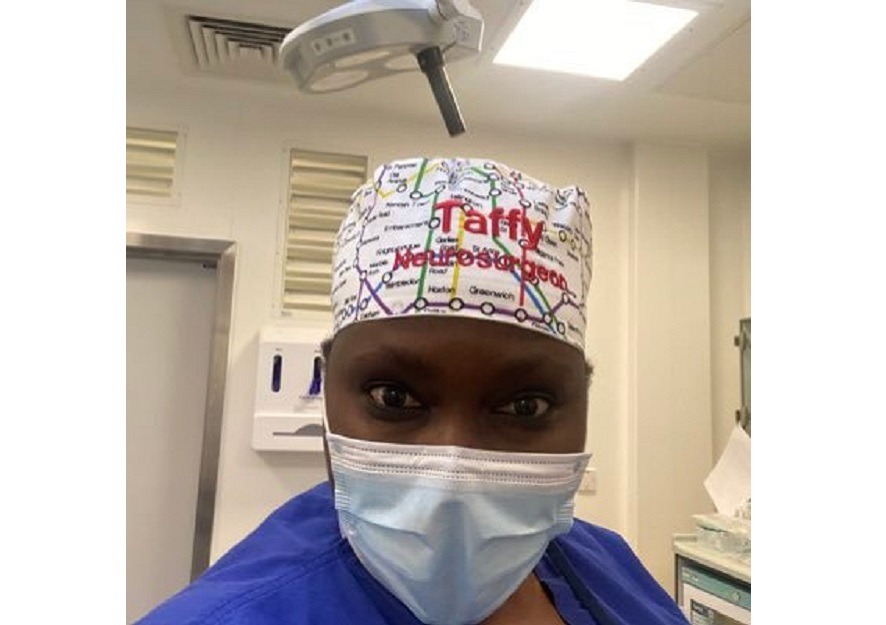
According to Top Doctors, pediatric neurosurgery includes “the evaluation, diagnosis, operative and non-operative treatment, critical care, and rehabilitation of children with nervous system disorders.”
Pediatric neurosurgeons typically treat conditions distinct from those addressed by an adult or general neurosurgeons.
Tafadzwa Mandiwanza is well-aware of this fact. Recently, the woman born in Zimbabwe became the first female pediatric neurosurgeon in Ireland. According to Irish Times, she works at Temple St Hospital, the sole pediatric neurosurgery center in Ireland.
Growing up in Harare, the capital of Zimbabwe, Mandiwanza always desired to become a physician. “My mother is a nurse, and my father recalls me telling him when I was three that I was going to be a doctor,” Mandiwanza told the Irish Times while celebrating her recent accomplishment.
During her medical studies at University College Cork, she initially believed she wanted to become a cardiothoracic surgeon. Performing a subdural hematoma — a procedure that removes blood from the brain to relieve pressure — during her surgical training at Cork University Hospital gave her second thoughts about becoming a cardiothoracic surgeon.
She has no regrets about studying to become a pediatric neurosurgeon. However, she acknowledged that her profession is difficult because neurosurgical problems in children are typically difficult and complex. Throughout childhood and adolescence, children with nervous system disorders typically require additional time and care.
Mandiwanza enjoys being present to assist with these issues. She told the Irish Times that she enjoys working with children and in the operating room.
Children are extremely resilient and have a greater capacity to recover and bounce back than adults.
“As a parent, it’s difficult to be responsible for someone else’s child, but I feel more empathetic because I am also a parent. I allow parents time to process the situation and discuss the operation’s risks and complications.
When asked if female surgeons differ from their male counterparts, she responded, “We’re more empathetic and a little less divine.” All surgeons must have a certain amount of ego, but female surgeons are more modest. I’ve read that imposter syndrome is no longer a phenomenon, but I must constantly remind myself that I am a neurosurgeon.
Women surgeons are a minority among physicians worldwide. They are employed in a traditionally white, male-dominated field, with some even being bullied, harassed, and discriminated against by their male coworkers. According to the 2017 Progress report by RCSI’s Working Group on Gender Diversity, only 10 percent of surgeons in Ireland are female. Mandiwanza and Catherine Moran, a neurosurgeon for adults at Beaumont Hospital, are the only two female neurosurgeons in Ireland.
Despite a recent survey indicating that many female neurosurgeons have experienced sexism at work, Mandiwanza stated that she has not encountered sexism as a female consultant. When I was a registrar working with a male senior house officer (a more junior position), I recall times when patients asked him questions and I had to respond, ‘I’m the one operating on you.’
Botswana-born Mandiwanza and her husband have lived in Ireland for twenty years. They were both naturalized in 2014, and all of their children were born in Ireland. During her advanced surgical training, she worked for two years at Cork University Hospital. She stated that it was difficult because her children were young at the time. She also completed additional training at Great Ormond St Children’s Hospital in London so that she could bring new skills back to her work in Dublin, Ireland.
Overall, Mandiwanza acknowledged that she would not have become Ireland’s first female pediatric neurosurgeon without a support network of people who had her back and gave her advice and encouragement. Mandiwanza stated that she would like to mentor other neurosurgeons, particularly women “coming through those lengthy training pathways.”


